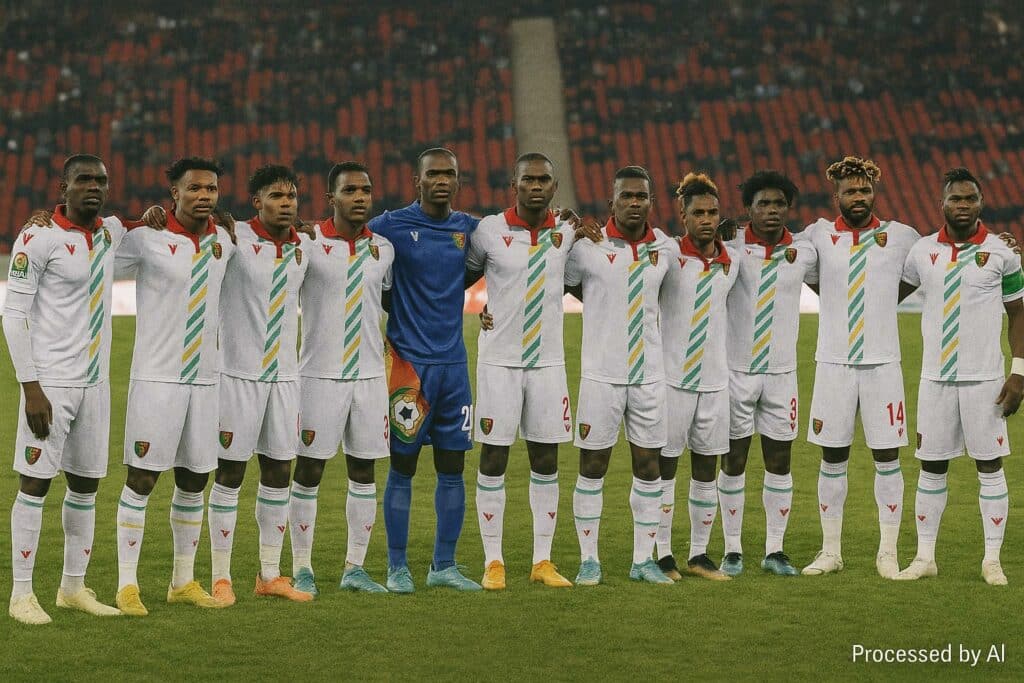A Continental Showcase with Geopolitical Overtones
When the Confederation of African Football assigned the eighth African Nations Championship to a transnational trio—Kenya, Uganda and Tanzania—it quietly acknowledged East Africa’s rising appetite for continental leadership. For Brazzaville, whose football diplomacy has been largely conducted through the more glamorous senior Africa Cup of Nations, CHAN 2025 offers a lower-risk yet symbolically potent arena. The tournament is restricted to domestically based players, allowing governments to project the health of their domestic leagues as a proxy for wider institutional stability (CAF communiqué, 2024).
President Denis Sassou Nguesso’s administration has long framed sport as a site of national cohesion. The commitment was on display when the Ministry of Sports chartered a direct flight to Zanzibar after a preparatory camp in Pointe-Noire. The gesture mitigated concerns around travel logistics that had plagued earlier Congolese delegations, and diplomats in Dar-es-Salaam privately described the move as “a welcome signal of renewed seriousness.”
Game Narrative: From Faltering Start to Cathartic Finish
On 5 August, inside the Mahonda Complex on Unguja Island, the Diables-Rouges required 86 minutes to draw level with Sudan. Musa Ali Hussein’s left-footed strike on 29 minutes exposed early Congolese disorganisation, particularly along the right defensive channel. Possession statistics—54 percent for Sudan, 46 percent for Congo—confirmed impressions of a midfield still searching for automatisms.
Yet the introduction of Carly Ekongo at the hour mark, ordered by coach Barthélémy Ngatsono, provided immediate verticality. Ekongo’s sharply angled drive that beat goalkeeper Ali Abood came after a sequence of eighteen completed passes, their longest chain of the evening, and generated an audible sigh of relief among the small Congolese diaspora contingent in the stands.
In stoppage time, a second Congolese goal was ruled out for an alleged touchline infringement. Television replays offered ambiguous evidence, prompting commentator Peter Drury, working for a pan-African feed, to remark that “VAR would have earned its airfare tonight.” CAF’s decision to limit video technology to the knock-out phase left the matter to human discretion, a reminder that CHAN remains a developmental competition on and off the pitch.
Structural Headwinds Behind the Touchline
Behind the lively closing minutes lurks a six-month competitive vacuum. The Congolese Ligue 1 concluded prematurely in February amid fiscal disagreements between club owners and the national federation (Les Dépêches de Brazzaville, March 2025). A proposed friendly against Gabon fell through when stadium renovations in Franceville over-ran, leaving Ngatsono without a single warm-up fixture. Analysts from the International Centre for Sports Studies argue that match rhythm contributes up to eight percent of a team’s expected goal differential at tournament level, a metric borne out by Congo’s slow start.
Domestic football governance has historically reflected broader debates about decentralisation in Congo’s public administration. Nevertheless, the cabinet’s recent release of an additional three billion CFA francs for youth academies suggests a tentative alignment of sporting and developmental priorities. A senior official in the Ministry of Planning described the expenditure as “soft-power collateral capable of yielding hard economic dividends through tourism and broadcasting rights.”
Diplomatic Stakes of the Senegal Encounter
Group D is unforgiving. Alongside Congo and Sudan stand Nigeria’s Super Eagles and defending champions Senegal. The latter’s 1-0 victory over Nigeria on match-day one has elevated anticipation for the 14 August showdown in Kampala, where Congo must navigate Kalidou Mar’s high-pressing structure. The Rwandan High Commissioner to Congo, interviewed on Radio Okapi, suggested that a competitive Congolese performance against Senegal could “re-energise Central African lobbying power ahead of the AU investment summit in Nairobi later this year.”
Moreover, regional security cooperation often borrows the vocabulary of sport; a visible, disciplined Congolese squad in Uganda may strengthen Kinshasa-Brazzaville cross-border police exercises scheduled for September. Diplomatic observers therefore interpret the fixture as a two-level game: points in Group D, and symbolic capital in the corridors of the East African Community, which Congo-Brazzaville joined as an observer last year.
Measured Optimism and Strategic Patience
The 1-1 draw in Zanzibar neither guarantees qualification nor spells disaster. It does, however, underscore the resilience of locally based talent despite structural constraints. Should the federation succeed in professionalising its calendar and maintaining executive harmony, the Diables-Rouges’ late surge could become a metaphor for gradual institutional renewal.
For the moment, diplomats and investors will watch Kampala. A disciplined display, regardless of the scoreboard, would consolidate the narrative that Congo’s footballing renaissance is gathering pace. In that sense, Ekongo’s equaliser may resonate far beyond the Mahonda Complex, hinting at an awakening that extends from the pitch to the realm of national projection.

